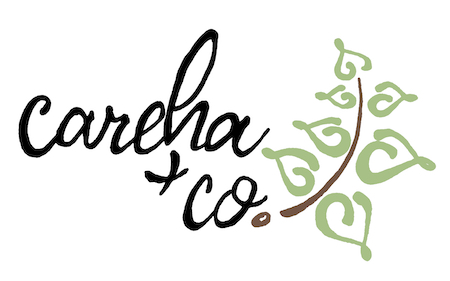
The first six weeks after giving birth, often referred to as the postpartum period, is a time of immense change—both physically and emotionally. As your body heals and adjusts, you’ll experience a range of emotions, from joy and relief to exhaustion and vulnerability. Whether you’re a first-time mom or welcoming your second or third child, this guide will walk you through what to expect during the initial postpartum weeks and offer natural healing tips to support your recovery.
Physical Changes in the First 6 Weeks
1. Vaginal or Cesarean Healing
After childbirth, your body goes through an important period of recovery. After a vaginal birth, there may be soreness, swelling, or stitches from a tear. Cesarean recovery involves healing from major abdominal surgery, which can take longer. Regardless of how your baby was born, rest and self-care are essential for optimal healing.
Tip for Healing Naturally: Soothing postpartum baths can aid in reducing inflammation and promoting comfort. My Postpartum Bath Soak is infused with specific herbs and botanicals that help with perineal healing, reducing swelling, and provide gentle relaxation. Incorporate it into your routine as a self-care ritual.

2. Postpartum Bleeding (Lochia)
It is common to experience bleeding for up to six to eight weeks after birth, even if you had a cesarean section. The bleeding gradually tapers off and changes color from red to pink to white or yellow.
Tip for Healing Naturally: Be patient with your body and listen to its signals to rest. Use all-natural sprays like my Postpartum Healing Spray, which contains soothing ingredients to support your body’s natural healing process and provide instant comfort.
3. Hemorrhoids & Perineal Discomfort
Hemorrhoids are common during and after pregnancy due to increased pressure in the pelvic region. This can cause discomfort, especially after delivery.
Tip for Healing Naturally: My Sit Happy Hemorrhoid Balm is formulated with all-natural, organic ingredients designed to reduce inflammation, soothe irritation, and provide cooling relief. Apply as needed to maintain comfort during the healing phase.
4. Breast Tenderness & Nipple Soreness
Unfortunately, breastfeeding isn't always "natural" for everyone and can cause some nipple soreness and overall breast tenderness.
Tip for Healing Naturally: My Mama & Baby Salve is a gentle, all-natural solution for soothing nipple soreness during breastfeeding. Made with organic ingredients, it provides nourishing relief while being completely safe for both mama and baby. Apply a small amount to soothe and protect your skin, offering comfort during those tender moments of nursing.

Emotional Changes and Postpartum Mood
5. Baby Blues vs. Postpartum Depression
It’s normal to experience mood swings, weepiness, or anxiety in the first few weeks after delivery due to hormone fluctuations. This period, known as the “baby blues,” typically fades after two weeks. However, if feelings of sadness, disinterest, or anxiety persist, it could be a sign of postpartum depression, which requires professional support.
Tip for Emotional Wellness: Take time to nurture yourself. Our Happy Mama Essential Oil Blend is designed to uplift your spirits. It’s a calming and grounding blend that can help manage stress and anxiety. Incorporate it into your daily routine, whether through aromatherapy or applying to pulse points for immediate relaxation.
6. Fatigue and Lack of Energy
It’s common to feel exhausted in the early postpartum period. Between night feedings, newborn care, and physical recovery, getting enough rest can be challenging.
Tip for Boosting Energy Naturally: Hydration and proper nourishment are key to maintaining energy. Spritz yourself with my Refreshing Body Mist to help boost your energy, balance your hormones, and leave yourself feeling fresh.
Tips for Healing Naturally During the Postpartum Period
1. Stay Hydrated and Nourished
Drinking plenty of water is vital for healing, especially if you’re breastfeeding. Eating nutrient-dense foods that are high in protein and fiber can help maintain your energy levels and regulate your mood. My Lactation Support Tea not only supports milk production but also provides a comforting ritual that can be enjoyed throughout the day. It’s gentle on the digestive system and supports your body’s nutritional needs.

2. Prioritize Rest
This can be easier said than done with a newborn, but whenever possible, nap when your baby naps and ask for help when you need it. Sleep is crucial for both physical and emotional recovery.
3. Practice Gentle Movement
Although your body needs time to heal, gentle movement like short walks can help improve circulation, boost your mood, and aid in recovery.
4. Incorporate Aromatherapy
Using essential oils and body mists can be an uplifting and grounding experience. Try this Lavender Essential Oil to give yourself a quick pick-me-up throughout the day. Its invigorating aroma helps refresh your senses when you’re feeling fatigued or overwhelmed.
5. Lean on Your Support Network
Whether it’s a partner, family, friends, or a professional counselor, having a support network is essential. Don’t hesitate to reach out for help with baby care, household tasks, or emotional support.
Final Thoughts
The postpartum period is a journey of healing, adjustment, and immense growth. By nourishing your body and mind, and using natural products designed to support your recovery, you’ll be able to navigate this time with greater ease. Remember, every mother’s experience is unique—so give yourself grace, patience, and love as you heal.
To explore more ways to support your postpartum journey, visit our shop at Careha + Co.
Wishing you healing,
Carley
Disclaimer: While I am an apprentice midwife with experience in natural remedies, the information provided in this blog is for educational purposes only and is not intended to replace professional medical advice. Always follow the postpartum instructions provided by your current healthcare provider and consult them before incorporating any new products or remedies into your postpartum care routine.
